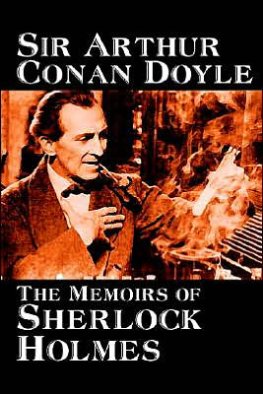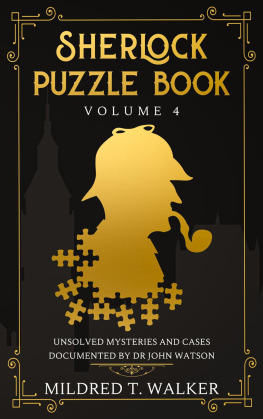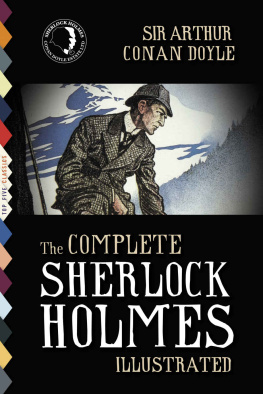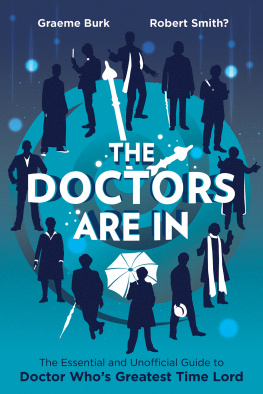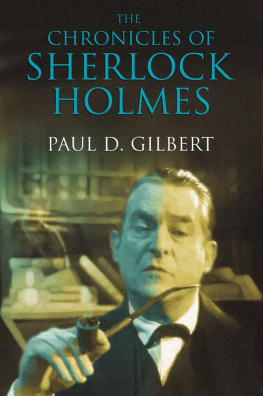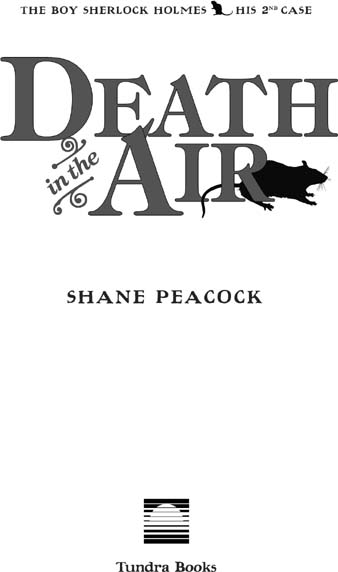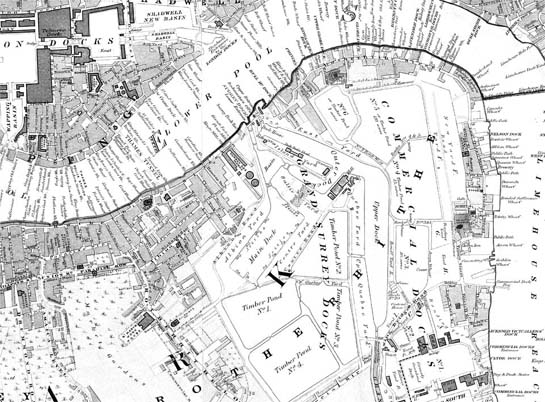Once again, thanks go to the great team at Tundra Books, especially to publisher Kathy Lowinger and editor Kathryn Cole; and to Jennifer Lum, who designs these wonderful Sherlock books, and Derek Mah who draws the beautiful covers. Id also like to thank the circus history experts who, over the years, have taught me so much about that spectacular performing art, especially the late Dr. John Turner, of Formby, England, friend and saw-dust-ring aficionado extraordinaire. And finally, thanks to my troupe at home: my wife, journalist and editor, Sophie Kneisel, an irreplaceable ally; and Johanna, Hadley, and Sam, children of all ages, whom I hope stay that way.
PREFACE
S herlock Holmes was doing something he shouldnt be doing. The police had asked spectators to stand back from the action in the amphitheater, but the boy couldnt resist getting a better view. Devilment had been in him from the day he was born. He sneaked out from the tightly packed crowd, slipping past the Bobbies, treading quietly on the planked floor. Everyone was looking up. He moved into the open space, his eyes riveted on the human beings in flight.
PART ONE
THE MERCURE INCIDENT

So swift, silent and furtive were his movements like those of
a trained bloodhound picking out a scent, that I could not
but think what a terrible criminal he would have made had
he turned his energy and sagacity against the law instead of
exerting them in its defense.
Dr. Watson in The Sign of the Four

HOLMES RISING
W hat is it like to see a man die right before your eyes? Sherlock Holmes is about to find out. High above, framed by the curving glass sky of the Crystal Palace, a man is plummeting toward him, screaming. The man had started out as a much smaller figure, gracefully flying through the air, moving to the sounds of a brass band, no new-fangled safety net below. But suddenly he was falling, and now he is growing huge. His mouth is open, his eyes wide, and Sherlock feels as though he can look right into him. Monsieur Mercure, the trapeze star, is about to lose his life. A one-hundred-foot fall onto the hard, wood floor of the Palace will finish him in an ugly way. It will happen in the blink of an eye; his bones will crack, his body deform. The band has stopped playing. Only the scream cuts the silence. For an instant, Sherlock wonders if Mercure will land on top of him, but the unfortunate aerialist strikes the unforgiving surface with a sickening thud, a body length away. The shrieks of women and shouts of men punctuate the air as the performer crumples and rolls up to the tall, thin boys third-hand Wellington shoes.
A crush of Palace patrons rushes to the spot. Sherlock does something strange. He doesnt cry out or faint or even kneel to take the mans battered head in his hands. He acts in the way he has been training himself to function for the last month. This is an opportunity, almost dropped upon him from the heavens, as if he were the hero in a sensation novel. He remains calm, observing everything in an instant. Then he reaches down, picks up the trapeze bar that has landed nearby, and examines it. There is something amiss about it and he sees it in a glance. As he does, he notices the mans lips moving beneath his dashing red imperial mustache and goatee. Leaning over, the boy brings his ear up close: Silence me, the man gasps and then lies still, splayed in a gruesome shape in his glittering purple costume and white silk tights. Sherlock sets the bar down and stands back.
Make way! shouts an advancing blue-uniformed Bobbie, as he un-holsters his black truncheon, threatening to swing it. Clear off! He plows a line, pushing people back, trying to get to the accident victim.
Oh my Lord! cries a woman in a green-striped silk dress, before she swoons at the sight of blood oozing from Mercures ears, and is nearly trampled. The flowers fall from her hair.
Hes dead! shouts a man in a top hat. Who is that boy?
Sherlocks hands are shaking so badly that he puts them in his threadbare pockets. He sweeps the scene again, observing the twisted, fallen man as closely as possible, the other three circus stars staring down from their perches in horror, and the trapeze ropes dangling from the ceiling. But the crowd is quickly blocking his view. He backs away, retreating through the mass.
He is bumped and jostled, and in seconds is at the rear of the horrified swarm. He turns and walks past excited stragglers racing to the scene, their footfalls echoing in the grand performance area under the cathedral ceiling in the central transept. Before long he is at the front doors, then down the big, white-stone steps and onto the giant, fountain-filled lawn on the Palace grounds. A hot sun is still high in the sky.
He pulls those quivering, long, fingers out of his pockets, holds them against his temples, and closes his eyes. He sees the peculiar marks on the wooden trapeze bar again, and hears the mans last words. But theres something else: though Monsieur Mercure had gone as stone-cold unconscious as a corpse and the top of his skull looked broken in, this daring man, known to the world as Le Coq, was still breathing.

Sherlock hadnt been looking for such a scene. He had come to the Crystal Palace that day to see his father. But there had been a surprise. His friend, Irene Doyle, was there too, waiting to speak with him. Its been a month and a half since Sherlock last saw her: on the night he shoved her aside as she climbed the rickety, wooden stairs to the Holmes little flat over the hatters shop in grimy Southwark south of the River Thames in London. It was the day his mother died. He had just held her in his arms and observed the poison on her lips. Moments later he had raced over London Bridge and into the East End where hed stolen a butchers knife and flown to a Mayfair mansion to slay her killer, the man responsible for the unsolvable Whitechapel murder. Somehow, hed held himself back from doing evil; instead, he had seized evidence of the mans guilt and given it to the police. But they, and especially Inspector Lestrade, had taken all the credit for themselves.
The last six weeks have seemed like years. Sherlock has grown much older. He stands up straight when he walks. There is little emotion on his face. His eyes are rarely cast down. He knows who he is and what he will be. His second case stands before him.
It is the first of July 1867 , and this London summer is boiling hot.

In mid-May he had been a broken, weeping thirteen-year-old boy, lying in a rain-soaked alley inside a dark city rookery called The Seven Dials. When his mother had died he had momentarily convinced himself that he could go on. But then he had collapsed. For three days, he had been without food or drink, getting little sleep, immobile on hard cobblestones, smelling the overflowing sewers and the rotting offal around him.


